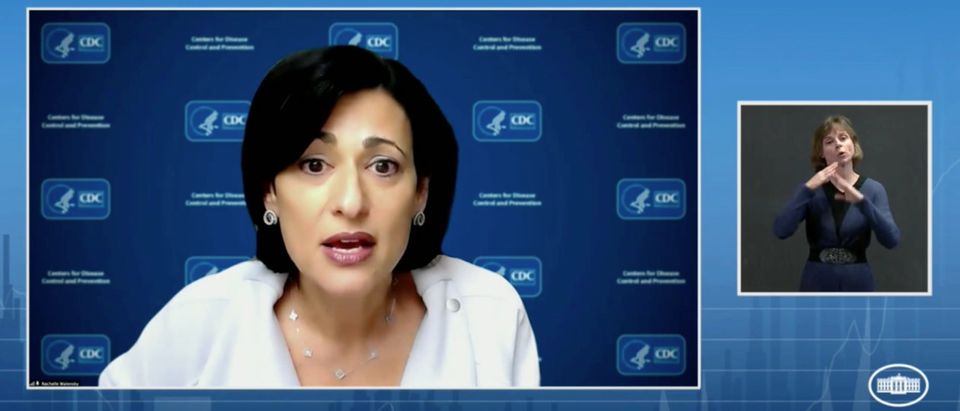Center for Disease Control and Prevention (CDC) Director Rochelle Walensky said Monday that “now is not the time” to lift coronavirus restrictions, despite recent declines in cases and deaths.
“I remain deeply concerned about a potential shift in the trajectory of the pandemic,” Walensky said during a White House press briefing. “The latest CDC data continue to suggest that recent declines in cases have leveled off at a very high number.”
Walensky said that the most recent seven-day average for new coronavirus cases represents a 2% increase from the previous seven-day average, and the seven-day average for deaths also represents an increase of more than 2%.
WATCH:
WATCH: Today, our public health experts are joined by COVID-19 response team coordinator Jeff Zients to talk through all things Johnson & Johnson vaccine and the progress we’ve made in our vaccination program in the last week. https://t.co/X4HFEkx15H
— White House COVID-19 Response Team (@WHCOVIDResponse) March 1, 2021
“These data are evidence that our recent declines appear to be stalling,” Walensky continued. “Stalling at over 70,000 cases a day. With these new statistics, I am really worried about reports that more states are rolling back the exact public health measures that we have recommended to protect people from COVID-19.” (RELATED: Biden Administration Threw CDC Director Under The Bus After She Said Teachers Can Return To School)
According to data from the COVID-19 tracking project, the number of people hospitalized for coronavirus has been declining since mid-January. The number of new coronavirus cases per day began rapidly declining at the beginning of January, data from the New York Times shows.
“We cannot be resigned to 70,000 cases a day,” she added. “2,000 daily deaths. Please hear me clearly. At this level of cases with variant spreading, we stand to completely lose the hard-earned ground we have gained.”
Several new strains of the coronavirus have been discovered, incuding a highly contagious UK strain, a Brazilian strain, and a South African strain. A recent study by Pfizer-BioNTech and the University of Texas Medical Branch found that Pfizer-BioNTech’s COVID-19 vaccine protects against the UK and South African strains, but is slighly less effective. The study concluded that a new vaccine is not needed for the variants.
“Now is not the time to relax the critical safeguards that we know can stop the spread of COVID-19 in our communities. Not when we are so close.”
Walensky encouraged people to continue wearing a mask and to follow other health precautions, noting that “vaccination is what will bring us out of this pandemic.”


